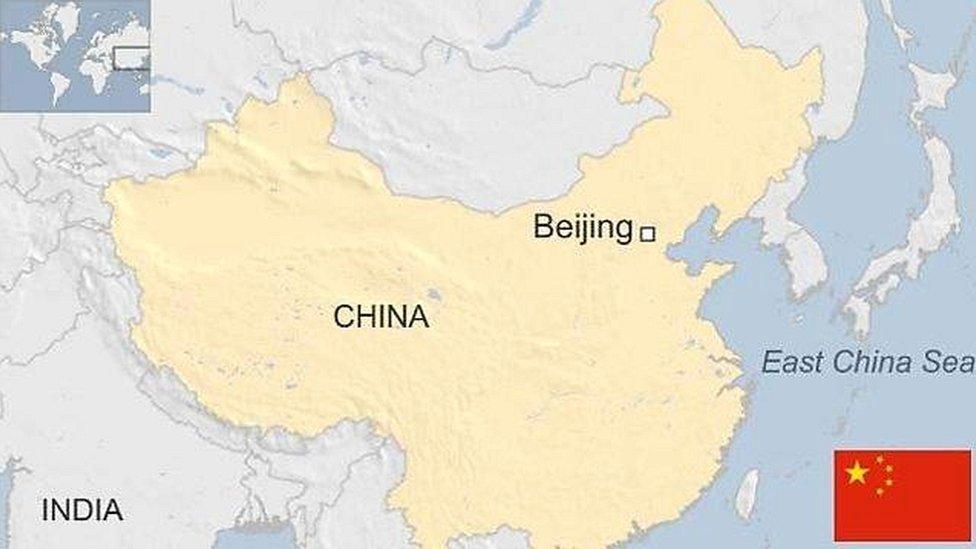China congress reveals growth target and defence boost
- Published
The BBC's Celia Hatton in Beijing: ''The meeting shows the progress of the government in its reforms''
China announced a growth target of 7.5% and revealed plans to raise its defence budget by 12.2%, as it opened its annual parliament session in Beijing.
Premier Li Keqiang said that economic development was the central task of the government, but "painful structural adjustments" were needed.
Japan voiced concern at the defence move, citing a "lack of transparency".
Mr Li also pledged to "declare war" on pollution, fight corruption "without mercy", and "crack down" on terrorism.
The congress marks one year since Xi Jinping was confirmed as president.
The 10-day meeting of around 3,000 legislators from delegations across China began on Wednesday.
China describes the National People's Congress (NPC), external as the country's "supreme organ of state power". It has the power to enact and amend legislation. In practice, it is generally considered a rubber stamp for the ruling Communist Party.
'Critical stage'
As parliament opened Premier Li Keqiang presented a work report highlighting targets for China's economy this year.
He said that the government's "work got off to a good start" but admitted that "there are still many problems that people are unhappy about".
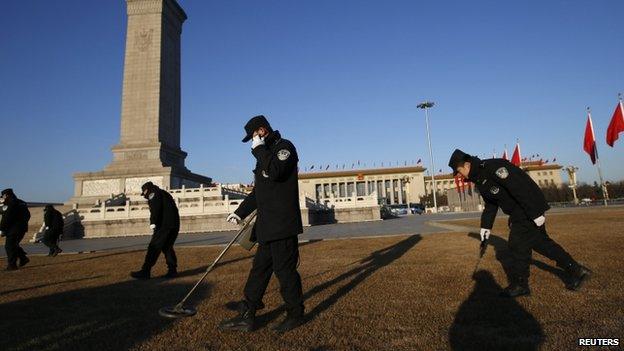
Security will be tight for the 10-day parliamentary meeting
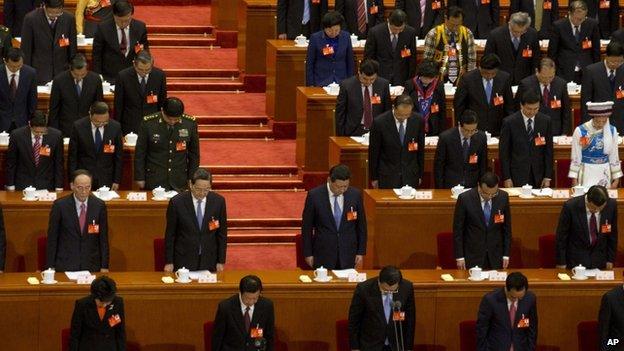
Delegates observed a minute of silence to commemorate victims of a mass stabbing attack in Kunming
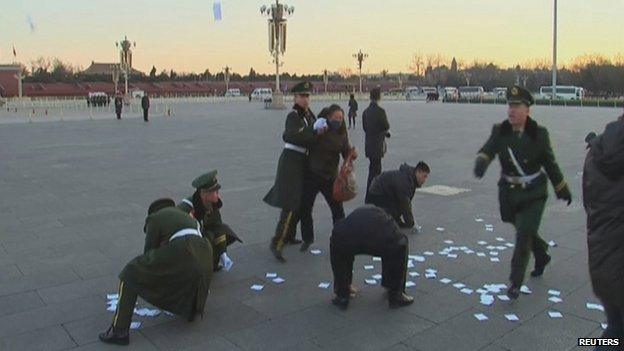
A protester releasing leaflets at Tiananmen Square, near the congress venue, was taken away
"Painful structural adjustments need to be made" in China's development, he said, though economic growth would remain stable.
According to the speech, the government will aim to keep inflation at about 3.5%, while boosting domestic growth and carrying out "people-centred urbanisation".
The growth and inflation targets were widely expected. The growth rate target in 2013 was also 7.5%.
Correspondents say the fact that the growth target for 2014 has not changed will lead some to question how serious China is about embracing economic reforms, which would involve lowering the growth rate.
According to Mr Li's speech, reforms were the "top priority" for the government and had entered "a critical stage".
"We must rely on the people, break mental shackles and vested interests with determination as great as a warrior cutting his wrist, and deepen reforms in all fronts."
Implementing reforms to tackle local government debt was also expected to be a priority.
'Matter of concern'
The latest military budget boost comes amid tensions between China and many of its neighbours, including Japan and the Philippines, over disputed territories.
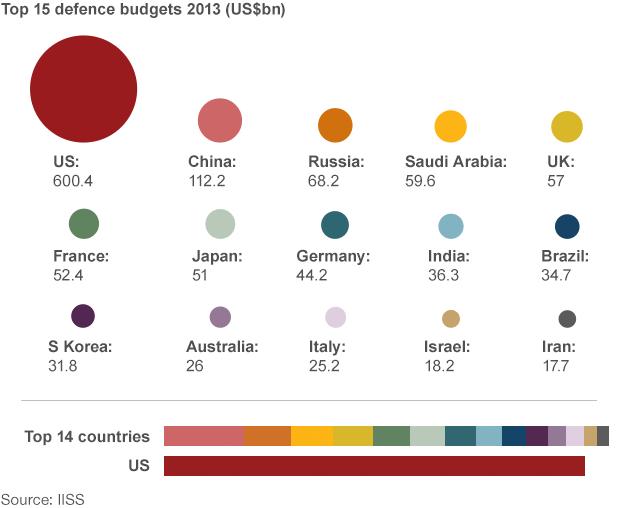
The increased budget will see military spending rise to just over $131bn this year (808 bn yuan).
China has consistently announced double-digit increases to its official military budget in recent years. Analysts say its total military spend may in fact be higher.
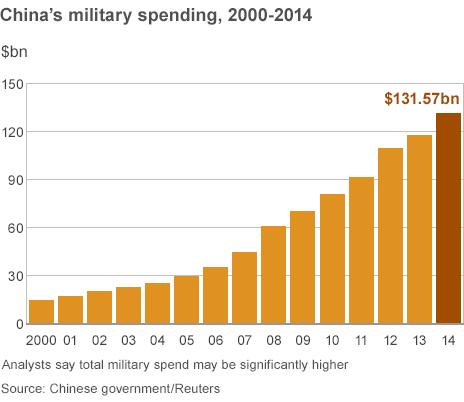
However, China points out it that it spends far less on defence than the United States.
China has also accused Japan of failing to adequately address its actions in World War Two.
In Wednesday's speech, Mr Li said: "We will safeguard the victory of World War Two and the post-war international order, and will not allow anyone to reverse the course of history."
Japan's Chief Cabinet Secretary Yoshihide Suga told reporters on Wednesday the lack of transparency in China's defence policy had "become a matter of concern for the international community, including Japan".
'Red light warning'
Issues such as targeting corruption and the environment are also on the agenda at the National People's Congress.
President Xi Jinping has launched a high-profile crackdown against corruption since coming to power last year.
In his speech Mr Li admitted the toxic smog hanging over many Chinese cities was "nature's red light warning against the model of inefficient and blind development".
"We will declare war against pollution and fight it with the same determination we battled poverty," he said.
In many urban areas, including Beijing, pollution levels routinely exceed the safety limits set by the World Health Organisation (WHO).
Security at the congress was tight in the wake of a mass stabbing attack at a railway station in Kunming, south-west China.
Eight attackers stabbed people at the station at random on Saturday, killing 29 and wounding more than 130.
Delegates held a moment of silence for the victims of the attack as the NPC opened.
Officials have blamed separatists from Xinjiang - which is home to the Muslim Uighur minority - for the attack.
On Wednesday morning, two protesters were dragged away from Tiananmen Square, near the venue for the NPC, by policemen. It is not clear what they were protesting about.
- Published5 March 2014
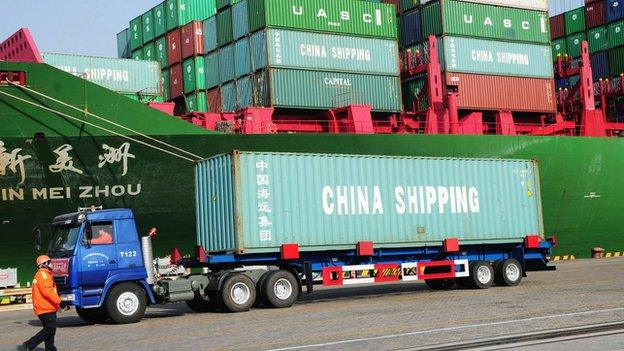
- Published17 February 2014
- Published5 February 2014
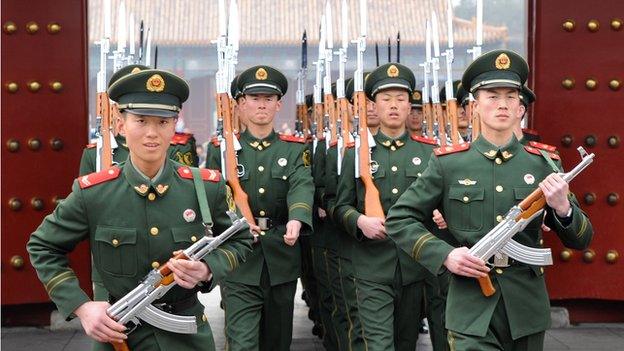
- Published4 March 2014
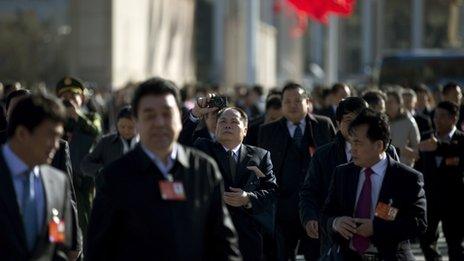
- Published25 August 2023
